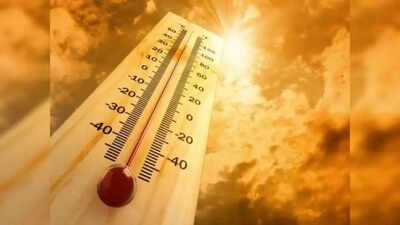ARTICLE AD BOX

As temperatures soar during a heatwave, staying properly hydrated becomes essential for maintaining your health and wellbeing. Heatwaves can cause excessive sweating, which depletes your body of water and vital electrolytes.
Dehydration, if left unchecked, may lead to fatigue, dizziness, heat exhaustion, or even life-threatening heatstroke. However, it’s not just about drinking more fluids—it’s also about choosing the right ones. Some beverages can actually make dehydration worse, while others support your body’s ability to cool down and function efficiently. Whether you're spending the day outdoors or trying to stay cool inside, understanding what to drink and what to avoid is key to managing extreme heat safely and effectively.
Best drinks to beat the heat in extreme heatwave
1. Water
Plain water is your number one defence against dehydration. It helps regulate body temperature, lubricates your joints, supports digestion, and keeps your organs functioning properly. During a heatwave, increase your intake of water even if you don’t feel thirsty. A good rule of thumb is to drink small amounts frequently throughout the day rather than waiting until you feel parched.
2. Coconut water
Coconut water is a natural and refreshing source of hydration.
It’s packed with electrolytes such as potassium, sodium, and magnesium—nutrients that are lost when you sweat. Unlike sports drinks, it’s low in sugar and contains no artificial additives. It’s especially helpful for restoring electrolyte balance after time spent in direct sun or following light exercise.
3. Oral rehydration solutions (ORS)
ORS solutions are specially formulated to replace fluids and electrolytes lost due to sweating, illness, or physical activity.
These are especially useful for children, the elderly, or anyone feeling symptoms of dehydration like headaches, dizziness, or fatigue. You can find ORS packets at pharmacies or make your own at home by mixing water with a pinch of salt and sugar.
4. Homemade lemonade or fruit-infused water
If plain water feels too bland, try enhancing it with slices of lemon, mint, cucumber, or berries. These add a subtle flavour that makes hydration more enjoyable, without the downsides of added sugar or preservatives.
Homemade lemonade, especially when unsweetened or lightly sweetened, can be both refreshing and revitalising.
5.Chia seed water
Mix a spoonful of chia seeds into a glass of water with a splash of lemon or lime juice. Chia seeds absorb water, creating a hydrating gel that also offers fibre and antioxidants. It’s a trendy, nutrient-packed drink among health-conscious consumers.
6. Barley water
Barley water is both hydrating and detoxifying. It's light on the stomach and is believed to support kidney health.
A pinch of salt and lemon juice can enhance its taste and cooling effect.
7. Herbal teas (served chilled)
Cooling herbs like chamomile, hibiscus, or mint can be brewed and chilled for a refreshing iced tea. These herbal teas are caffeine-free and can help soothe the body and mind during intense heat.
8. Aloe vera juice
Aloe vera is known for its cooling and anti-inflammatory properties. Diluted aloe vera juice, taken in small amounts, can aid hydration and digestion—just make sure it's food-grade and not overly processed.
9. Watermelon or cucumber juice
These high-water fruits are perfect for juicing. They hydrate, replenish minerals, and offer natural sugars that provide quick energy without the crash.
Drinks that you should avoid in heatwave
1. Alcohol
Although a chilled beer may seem tempting, alcohol is a strong diuretic that encourages the body to lose more fluids. Drinking alcohol during a heatwave can worsen dehydration, impair judgment, and increase the risk of heat-related illnesses. It also interferes with your body’s ability to regulate temperature, which can be dangerous in extreme heat.
2. Sugary drinks
Soft drinks, packaged juices, and sweetened iced teas may provide temporary relief, but they’re loaded with sugar, which can draw water out of your cells and slow down the hydration process. They also provide empty calories, often leading to energy crashes that make you feel even more tired in the heat.
3. Excessive caffeine
While moderate caffeine consumption is generally safe, drinking too much coffee or energy drinks can lead to increased urination and fluid loss.
In hot weather, this can contribute to dehydration. If you do consume caffeinated beverages, try to balance them with equal or greater amounts of water.
4. Carbonated energy drinks
Many carbonated energy drinks are not only high in caffeine but also loaded with sugar, sodium, and artificial additives. These ingredients can dehydrate the body, elevate heart rate, and increase internal heat, making them especially risky in high temperatures.
They can also lead to jitters, nausea, or lightheadedness when consumed during prolonged heat exposure.
5. Very cold beverages in excess
While cold drinks can offer immediate relief, consuming icy beverages too quickly or in large quantities may cause blood vessels in the stomach to constrict, slowing hydration. It can also shock your system and potentially lead to stomach cramps. Cool or room temperature drinks are often more effective for steady, safe rehydration during a heatwave.
Extra hydration tips
Eat hydrating foods: Fruits like watermelon, oranges, strawberries, and vegetables like cucumbers and lettuce contain high water content and help supplement fluid intake naturally.Keep a water bottle handy: Carry a reusable bottle when you're on the go. This acts as a reminder to drink frequently and gives you easy access to water.Establish a routine: Drink water first thing in the morning, before meals, and after every time you return indoors from outside.Monitor your body: Clear to light yellow urine is a sign of good hydration. Darker urine or infrequent urination could indicate that you need to drink more.Cool your drinks sensibly: Avoid ice-cold drinks in excess as they can cause your body to retain heat. Slightly cool or room-temperature fluids are often better tolerated during heatwaves.



.png)
.png)
.png)
















 4 hours ago
5
4 hours ago
5









 English (US) ·
English (US) ·